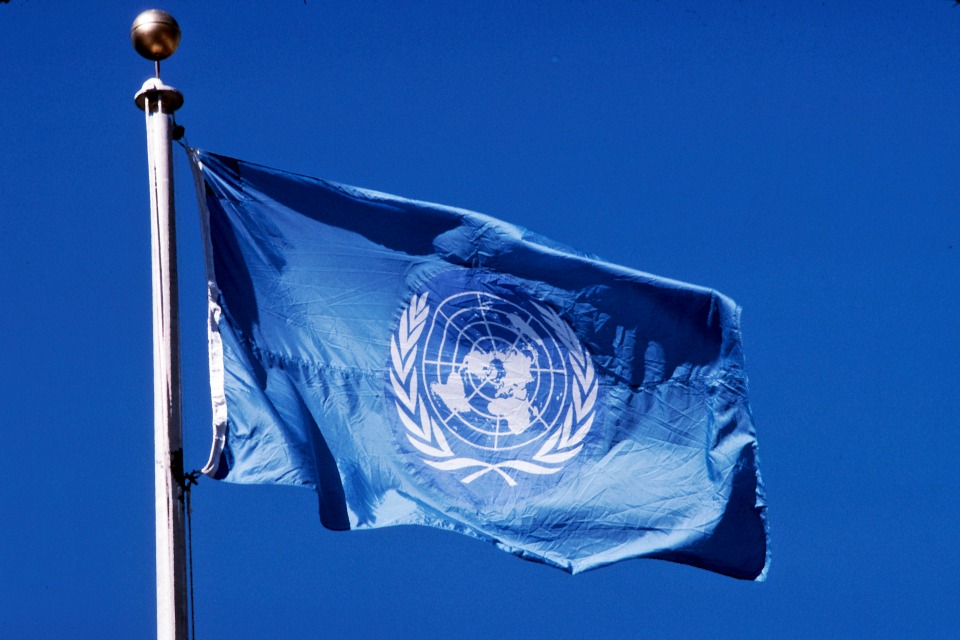“To deter atrocities and achieve justice for victims, perpetrators of genocide must be held accountable for their actions”
Statement by Ambassador Lyall Grant of the UK Mission to the UN, to the UN Security Council meeting on: Threat to International Peace and Security: Prevention and Fight Against Genocide

Thank you Madam President,
Thank you for convening this important meeting to mark the 20th anniversary of the genocide in Rwanda. I’d like to thank the Deputy Secretary-General for his presence and his thoughtful intervention today and I thank Colin Keating for his powerful and telling testimony, speaking from a position of real authority as the President of the Security Council in April 1994. We must heed his important recommendations.
Twenty years ago the international community said ‘never again’. This debate is an important opportunity to assess the progress made against that pledge and to consider what more should be done.
Terrible events took place in Rwanda in 1994. Today, we remember the victims, the survivors, and those who risked their lives to stop the horror. We remember both the personal tragedies and the horrendous scale of the killing. We commend the Rwandan people on the outstanding progress they have made in transforming their country from an impoverished, war-torn state into a stable, confident country. The United Kingdom has been, and will continue to be, a longstanding friend.
But it is not enough simply to remember. The events in Rwanda in 1994, and other genocides and mass atrocities, like Srebrenica in 1995, underline the vital shared interest in devising and re-evaluating measures to protect populations at risk. The primary responsibility for protecting citizens rests of course with the States themselves. But 1994 showed us that, where a State is failing to act to protect its own population or, even worse, is active in persecuting and killing its own citizens, the international community has an equal and shared responsibility to do all it can to protect populations at risk.
States must act in full conformity with the United Nations Charter and work with and through the United Nations to confront threats. We urge countries that haven’t already done so, to sign up to and ratify treaties such as the Convention on the Prevention and Punishment of the Crime of Genocide, and the Rome Statue of the International Criminal Court. These treaties work because they provide effective penalties for persons guilty of genocide.
To deter atrocities and achieve justice for victims, perpetrators of genocide must be held accountable for their actions. Since the genocide in Rwanda, global work to fight impunity has been considerably strengthened through the investigation and prosecution of crimes in the international criminal justice system. The International Criminal Tribunal for Rwanda has made a substantial contribution. And in the International Criminal Court, we now have a permanent Court with jurisdiction over genocide, war crimes and crimes against humanity. It is vital that States cooperate with the ICC so it can deliver accountability where national authorities are unable or unwilling to act. There must be no safe harbour for those who commit atrocities no matter what office they hold. It is a matter of great regret that some ICC States Parties have failed to comply with their obligation to implement an arrest warrant for an indictment which covers three counts of genocide. It is high time for States to live up to those obligations and for this Council to follow up on its referral of the situation in Darfur.
Madam President,
The Rwandan Genocide is one of several instances where the Security Council failed to act. But since 1994, the United Nations has brought about real improvements in our collective ability to take action in situations that could result in mass atrocities. We have responded to the horrors of the past with a number of important decisions:
In 2006, the Security Council adopted Resolution 1674 on protecting civilians and reaffirmed its commitment in Resolution 1894 in 2009. Protection of Civilians is now a cornerstone of modern peacekeeping and is incorporated into most peacekeeping mandates.
The United Nations has developed better early warning mechanisms to equip the international community with the means to pre-empt mass atrocities. The High Commissioner for Human Rights, the human rights special procedures, the Human Rights Commission and the Secretary-General’s Special Adviser on the Prevention of Genocide, all make important contributions. But as Ambassador Keating spelt out, early warning by itself is not enough. We must get better at translating early warnings into effective preventative action and this requires political will. Political will is the responsibility of every single member of the Security Council and especially every Permanent Member of the Security Council.
The Responsibility to Protect initiative of 2005 is another positive development and is increasingly incorporated into national governments’ deliberations. We must support states that are building their capacity on the preventative aspects of R2P and help them respond to tensions before they escalate.
Madam President,
When the international community unites, we can achieve progress that would otherwise be impossible.
A united Security Council effectively prevented mass atrocities in Cote d’Ivoire and in Libya and has made positive progress in Mali and Somalia. Today, widespread insecurity in the Central African Republic is creating and intensifying ethnic and religious divides. But the African Union, the United Nations and the European Union are working together to bring hope to that appalling situation.
But immense challenges remain however. South Sudan, the world’s newest nation, faces descent into civil war if peace talks falter. In Syria, the regime still denies the life-saving access the population desperately needs and continues to persecute and kill its own citizens indiscriminately.
Madam President,
Twenty years after the terrible atrocities in Rwanda there are no more excuses. We now have the tools not just to say ‘never again’ but to stay true to our word and to act together to prevent future genocides.